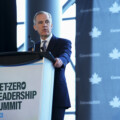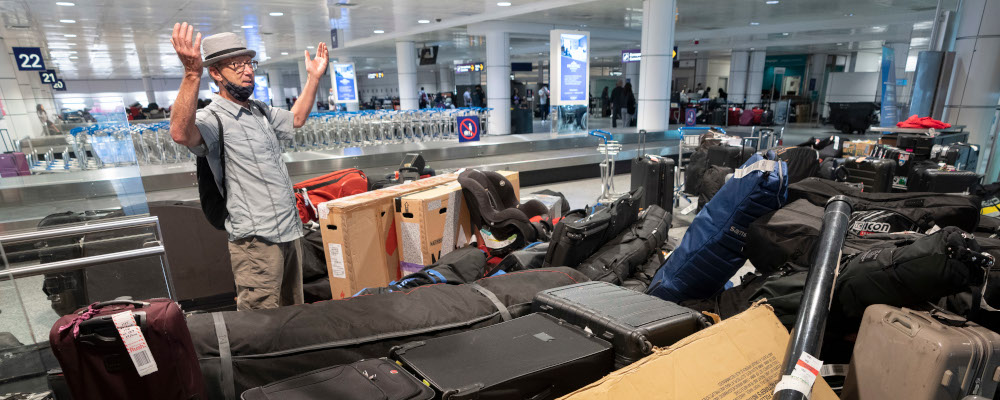Transport Minister Omar Alghabra recently announced that the government will overhaul the airline passenger bill of rights, news that doubled as a reminder that rights are something Canadian airline passengers ostensibly have. In the aftermath of the chaos that was the holiday travel season, the Canadian Transportation Agency only issued a handful of fines to airlines who failed to compensate passengers for lost luggage and confusing delays, an underwhelming response the agency attributes to a backlog of 30,000 passenger complaints. The stern message to airlines is clear: if you jerk customers around, an overworked bureaucrat might have time to think about slapping your wrist sometime next year.
The lack of passenger recompense is the latest example of airlines replacing “the customer is always right” with a more modern attitude of “the customer is always welcome to piss off and fly their own plane.” Canadians pay some of the highest airfares in the world, a fact partially attributed to our lack of short-haul budget airlines. Not coincidentally, WestJet and Air Canada are taking steps to ward off new carriers: WestJet slashed routes in eastern Canada to focus on strengthening their western stronghold, while Air Canada, in a touching gesture of reciprocation, did the reverse.
Essentially, our two biggest airlines are barely trying to compete with each other. Even Canada’s staunchest capitalists rarely dream of paying more for fewer options, and while the airlines attribute the cuts to pandemic recovery measures, they also said holiday flights would “run smoothly” even as unions warned otherwise, so maybe don’t take them at their honeyed words. The Saskatoon Chamber of Commerce certainly has a different interpretation, calling on Ottawa to probe for collusion.
Speaking of paying more for less, Canada’s Federal Court of Appeal has rejected the Competition Bureau’s request to block Rogers’ acquisition of Shaw, just in case you were worried that the Canadian telecommunications industry wasn’t oligarchical enough. Canadian phone plans, as you’re almost certainly well aware, are among the most expensive in the world: a 2021 study found that it was 13 times more expensive to own a phone in Canada than in France. The disparity among the cost of internet service isn’t as stark, but don’t worry, we’re still a world leader.
Unlike airfare, which is complicated by taxes and other fees, there is no excuse for Canadian telecom companies to point at. The explanation for bills Scrooge McDuck would consider excessive is simple: the industry is about as competitive as the 1923 Canadiens would be against the 2023 iteration after the former were unearthed from their graves. Bell, Rogers, and Telus threaten to cut jobs or rural infrastructure investment whenever a CRTC official so much as sneezes in their direction. Coordination, the polite word for collusion, is an open secret, making buying a phone plan feel like you’re dealing with a Mafia family that peddles cat GIFs.
Vicky Eatrides, the new CRTC chair, has vowed to address high prices and a lack of competition, which is one of the most frequent stops on the Möbius strip of Ottawa studying the telecom industry, expressing outrage at high costs, instructing the CRTC to address the matter, and then folding like a cheap tent whenever the moment for action arrives. The result of this interminable process is that we enjoy a free market only in the sense that we are free to choose who screws us.

But while Eatrides may be tilting at windmills that Rogers plans to buy the naming rights to, we should still support her crusade. Airlines and telecom companies, which already viewed the public with about as much respect as the Soylent Corporation ever did, are growing even larger and more indifferent to consumer needs, and even the resigned cynicism of Canadian consumers has its limit: small claims courts are awash in cases brought forward by airline passengers who feel abandoned by both the industry and the government.
Eatrides and Alghabra need to follow through on putting consumers first, because it feels as though we’re on the verge of either finally reigning in corporate arrogance or forever surrendering to an environment where Air Canada expects us to feel grateful for getting strapped to the wings of their planes. It’s a headache to take on Canada’s biggest businesses, but there is no one on the political spectrum who likes giving WestJet and Telus increasingly large portions of their paycheque. And if the government doesn’t finally bring costs down, Poilievre and Singh will be happy to present their plans to voters.
Recommended for You

Jordan Brennan: Canada’s financial sector regulation delivers stability—but at what cost?

DeepDive: Enshrining the right to repair: Making life affordable for consumers at no cost to government

Paul de Jong: In the face of today’s economic threats, it’s time for Canada to get building

DeepDive: Time to move from talk to action on regulatory reform



